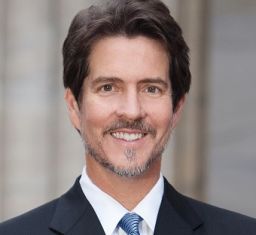Editor’s Note: Page Pate, a CNN legal analyst, is a criminal defense and constitutional lawyer based in Atlanta. He is an adjunct professor of law at the University of Georgia, a founding member of the Georgia Innocence Project, a former board member of the Federal Defender Program in Atlanta and the former chairman of the criminal law section of the Atlanta Bar Association. Follow him on Twitter @pagepate. The opinions expressed in this commentary are his. Read more opinion articles at CNN.
President Donald Trump is clearly worried. He pretends that information prosecutors provided in recent filings in the Michael Cohen and Paul Manafort cases “totally clears” him. But in reality, federal prosecutors in the Southern District of New York have outlined a convincing case that Trump directed Cohen to make illegal campaign payments to conceal his alleged affairs.
Trump’s response? Not surprisingly, he says it’s “Time for the Witch Hunt to END.”

Not so fast. This is not a witch hunt, and Special Counsel Robert Mueller is far from finished. Even if he has already gathered enough evidence to write his report about Russian collusion and possible obstruction of justice, he shouldn’t send his team home until someone in his office interviews Trump. And he shouldn’t do it through written questions submitted to Trump’s lawyers, but rather face to face and in a setting where Trump must tell the truth or face criminal prosecution when he leaves office.
A personal interview would allow prosecutors on Mueller’s team to confront Trump with the evidence they have gathered. While Trump consistently has denied that he colluded with Russia or obstructed justice, those public statements don’t subject him to prosecution if they are lies. Lying in an interview with the special counsel’s office would.
His lawyers know this, and that’s why they fought off Mueller’s earlier requests for an in-person interview with all sorts of conditions and restrictions. Any lawyer knows it’s much more dangerous to sit down with prosecutors who have the benefit of knowing what other witnesses have said and whether any documents contradict the client’s testimony. Such an interview is especially dangerous when the client happens to be a potential subject of the investigation.
It’s not just the risk of a so-called “perjury trap.” The benefit of a personal interview is that prosecutors don’t have to accept the first scripted answer. They can probe – ask “what happened next” and “why did you do (or not do) that?” In short, they can gauge truthfulness in real time.
The special counsel’s investigation has been productive even without the President’s complete cooperation. Mueller’s team has secured indictments and guilty pleas, interviewed countless witnesses and, no doubt, pored over stacks of documentary evidence. Mueller appears to have done his best to fulfill his mandate to “ensure a full and thorough investigation of the Russia government’s efforts to interfere in the 2016 presidential election.”
But he can’t quit now. On Friday, we learned from the President’s lawyer that the special counsel’s office told Manafort that prosecutors believe the President knew about the pivotal Trump Tower meeting in 2016. Of course, Trump previous has denied being aware of it, personally and through surrogates. Still, Trump needs to be confronted on this issue on the record, in a setting where prosecutors can ask follow-up questions and judge his credibility in person. A personal interview is better to get the truth than the “take home test” with written questions where his legal team can filter his responses.
Aside from collusion, Trump needs to be questioned about his decisions and motives that may point to obstruction of justice. The written questions given to his lawyers were reportedly limited to the “collusion” part of the investigation and did not touch on possible obstruction of justice and witness tampering.
The possibility that the President of the United States obstructed justice is real, and it should be investigated thoroughly. But that can’t happen without confronting the President himself. Mueller, or one of his top deputies, needs to ask Trump the tough questions and get answers. Trump needs to be pressed on the who, what, when and why, in a setting where any false answers would subject him to a possible felony conviction when he leaves office.
Of course, it’s not that Mueller hasn’t asked for an interview.
But Trump has refused. It’s hard to tell if the refusal is Trump’s idea or his lawyers. Trump has said he wanted to talk to Mueller, but Trump can be full of bluster. Trump’s lawyers have good legal reasons to object to such an interview, and that’s precisely why there should be one.
Get our free weekly newsletter
The special counsel’s office has subpoena power. But the ability to enforce a subpoena would depend on the Justice Department standing behind it. We cannot predict whether Acting Attorney General Matt Whitaker or Deputy Attorney General Rod Rosenstein would allow that to happen. Even if they did, it remains unclear whether Trump would be compelled to appear before a grand jury.
A face-off would have significant constitutional implications, but it’s worth the risk. President Bill Clinton voluntarily agreed to testify before a grand jury after Ken Starr issued a subpoena, which was eventually withdrawn. Mueller needs to be willing to issue a subpoena as well.
Mueller has done a lot to uncover the illegal conduct that occurred before, during and after the 2016 presidential campaign. Trump supporters may say he’s done too much. But Americans should not sit by and let Trump shut down this investigation until he agrees to be personally interviewed. That’s a necessary step in a “full and thorough” investigation focused on finding the truth.






